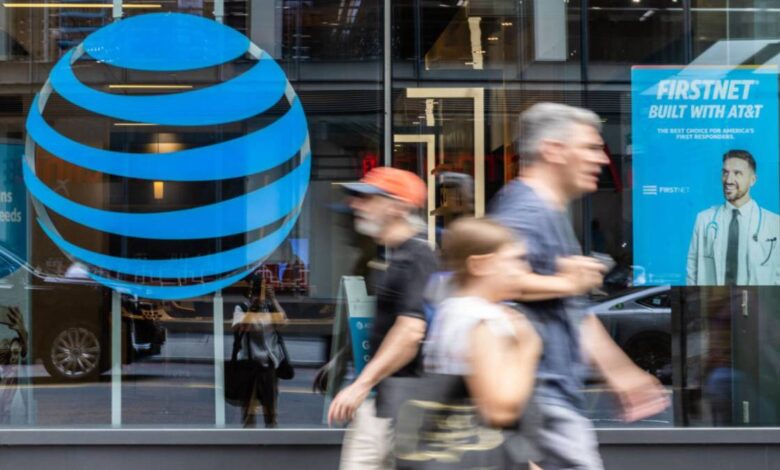AT&T’s response to a growing threat spells trouble for customers

AT&T, also known as T, has been experiencing an increase in momentum from consumers in the first few months of this year, despite making changes to a crucial discount. In their first-quarter earnings report for 2025, AT&T disclosed that they had a net income of $4.7 billion during the quarter, which is a 19% increase compared to the same quarter in 2024.
The telecom giant also announced that they had gained 324,000 new postpaid phone customers and 261,000 new Fiber internet customers in the first few months of the year. However, AT&T recently made a controversial decision to decrease their autopay discount from $10 to $5 for customers who pay their monthly bill with a debit card, leading to frustration among customers and even threats to switch phone providers.
Despite the positive financial results, AT&T is wary of the potential impact of President Donald Trump’s tariffs on imported goods. The President initially announced a 10% baseline tariff on all countries importing goods to the U.S., with some countries facing higher rates. This move could potentially increase the cost of smartphones and other devices sold by AT&T, as well as network and technical equipment.
During an earnings call, AT&T CEO John Stankey expressed concerns about the impact of tariffs on the company’s devices and hinted at possible price hikes for customers. He emphasized that the magnitude of any price increase would depend on various factors, including how vendors pass on the tariffs and the effect on consumer demand.
As a result of the tariff uncertainty, AT&T has noticed an uptick in customers upgrading their phones out of fear of price increases in the near future. This behavior shift was triggered by the announcement of reciprocal tariffs in early April. AT&T’s Chief Financial Officer Pascal Duroche noted that upgrades have been higher than expected following the tariff announcement.
In a similar vein, Verizon, another major telecom company, issued a warning about passing down tariff costs to customers during an earnings call. Verizon CEO Hans Vestberg stated that if handset costs increase due to tariffs, the company would not absorb the additional expenses and would have to raise prices for customers.
Unlike AT&T, Verizon has seen a decline in customers opting to upgrade their phones, with many choosing to hold onto their devices for longer periods. This trend aligns with a survey from CNET, which revealed that a significant portion of U.S. adults feel pressured to make tech purchases due to fears of tariff-related price hikes.
In conclusion, AT&T and other telecom companies are closely monitoring the impact of tariffs on their business operations and customer pricing. The uncertainty surrounding tariffs has led to changes in consumer behavior and potential price adjustments in the telecom industry.





